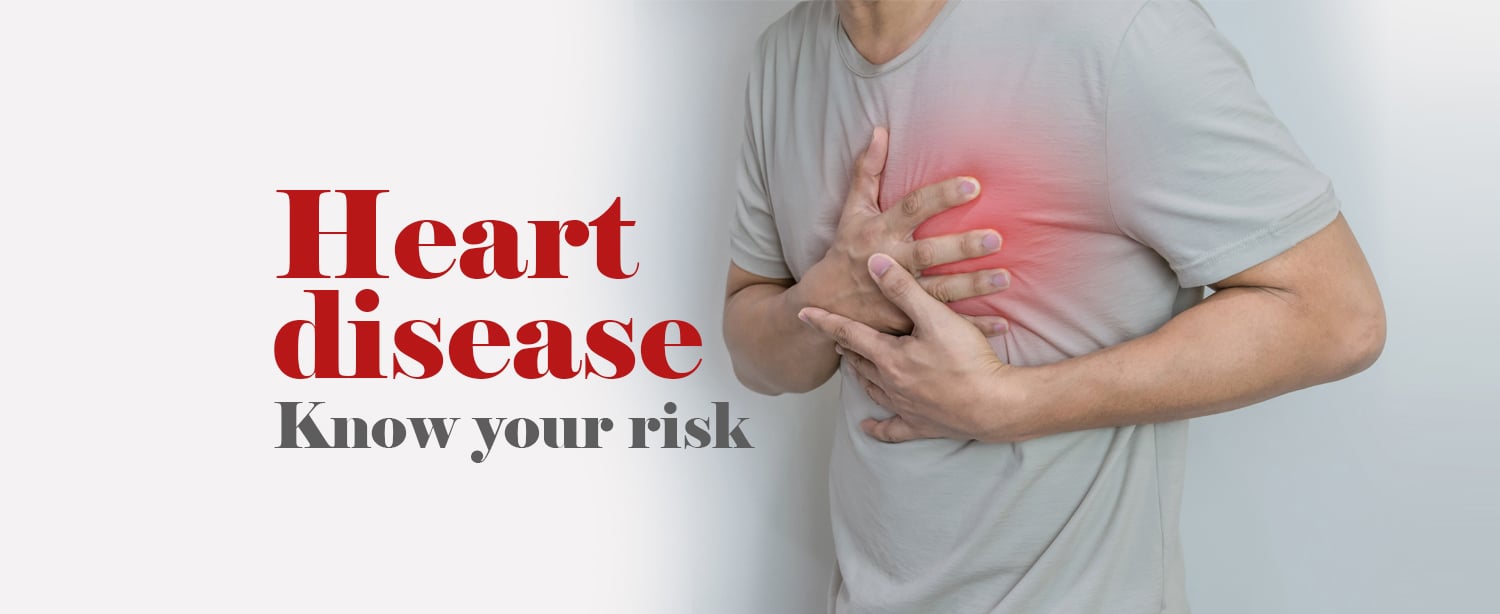Do you have a history of heart disease in your family? Do you lead a sedentary lifestyle or follow unhealthy eating habits? Being aware of your risk factors is important to take essential precautions and protect your heart health.According to the World Heart Federation, cardiovascular disease (CVD) is still the leading cause of death worldwide, accounting for 18.6 million deaths per year. According to the Global Burden of Disease, CVDs account for over a quarter (24.8%) of all fatalities in India.
Heart disease is caused by a variety of factors. Certain risk factors increase your chance of developing it. Heart disease is more likely to occur if you have multiple risk factors.Speak to your family doctor about your family’s medical background and consult a cardiologist for further assistance.
Risk factors for Heart disease
Knowing your risk factors and implementing positive lifestyle changes to minimise your risk are the first steps in preventing heart disease. The majority of heart ailments can be avoided by making healthy decisions. There are certain heart disease risk factors that you can control and others that you can’t. The following are uncontrollable risk factors for heart disease:
- Being male.
- Older age.
- Family history
- Ethnicity.
Heart disease risk factors that are controllable include:
- Smoking.
- Unhealthy cholesterol numbers.
- Uncontrolled high blood pressure.
- Physical inactivity.
- Obesity.
- Uncontrolled diabetes.
- Uncontrolled stress, depression, and anger.
- Poor diet.
- Alcohol use.
Preventing Heart disease
According to research, heart disease can be prevented in more than half of the cases by making simple lifestyle adjustments. These modifications can typically enhance your entire physical and mental health in addition to lowering your risk of heart attack and stroke. Take these precautions to reduce your risk of heart disease:
- Quit smoking
Smokers have more than twice the risk of heart attack as non-smokers and are much more likely to die from them. Quit smoking and avoid exposure to secondhand smoke. - Control your cholesterol
Your risk for heart disease increases with unhealthy cholesterol numbers. A diet low in cholesterol, saturated and trans fats, and simple sugars, and high in complex carbohydrates can help lower cholesterol levels in some people. Regular exercise and medication will also help lower “bad” cholesterol and raise “good” cholesterol in some cases. - Control high blood pressure
Nearly 1 in 3 adults suffer from high blood pressure. Your doctor will assess your blood pressure numbers in light of your overall health, lifestyle, and other risk factors and suggest a treatment plan. - Manage your blood sugar levels
If not properly controlled, diabetes can lead to heart disease and heart damage, including heart attacks. Control diabetes through a healthy diet, exercise, maintaining a healthy weight, and medication as prescribed by your doctor. - Stay active
Most people should exercise 30 minutes a day, at moderate intensity, on most days. Aerobic activities that raise your heart rate include brisk walking, cycling, swimming, jumping rope, and jogging. Weight training is also recommended. - Eat right
Eat a heart-healthy diet low in sodium, saturated fat, trans fat, cholesterol, and refined sugars. Try to increase your intake of foods rich in vitamins and other nutrients, especially antioxidants, eat more fruits and vegetables, nuts, and whole grains. - Say “No” to alcohol
Excessive alcohol intake increases your risk of getting a heart disease. Avoid all forms of alcohol. - Maintain a healthy weight
Obesity by itself could raise your risk for heart disease. A balanced diet and regular exercise can help you maintain a healthy weight. - Manage stress
Poorly controlled stress and anger can worsen heart disease. Here are a few ways to reduce your stress levels:- Yoga and meditation.
- Listen to music.
- Read a book.
- Take up a hobby you enjoy.
- Manage your time better.
- Set realistic goals.
- Be regular with heart health check-ups
Preventive health check-ups are often ignored and delayed by people. Discuss your lifestyle as well as your family’s medical history with your doctor and schedule health checkups to protect your heart health
Cardiac care at KokilabenDhirubhaiAmbani Hospital
The Centre for Cardiac Sciences is equipped with cutting-edge technology, world-class infrastructure, and a highly experienced team of cardiologists and cardiac surgeons. We offer a comprehensive programme for the prevention, diagnosis, treatment, and rehabilitation of heart disease in people of all ages. The team has successfully performed over 8500 cardiac surgeries in the past. Visit our hospital website for further information: https://www.kokilabenhospital.com/departments/centresofexcellence/centrefor_cardiacsciences.html


